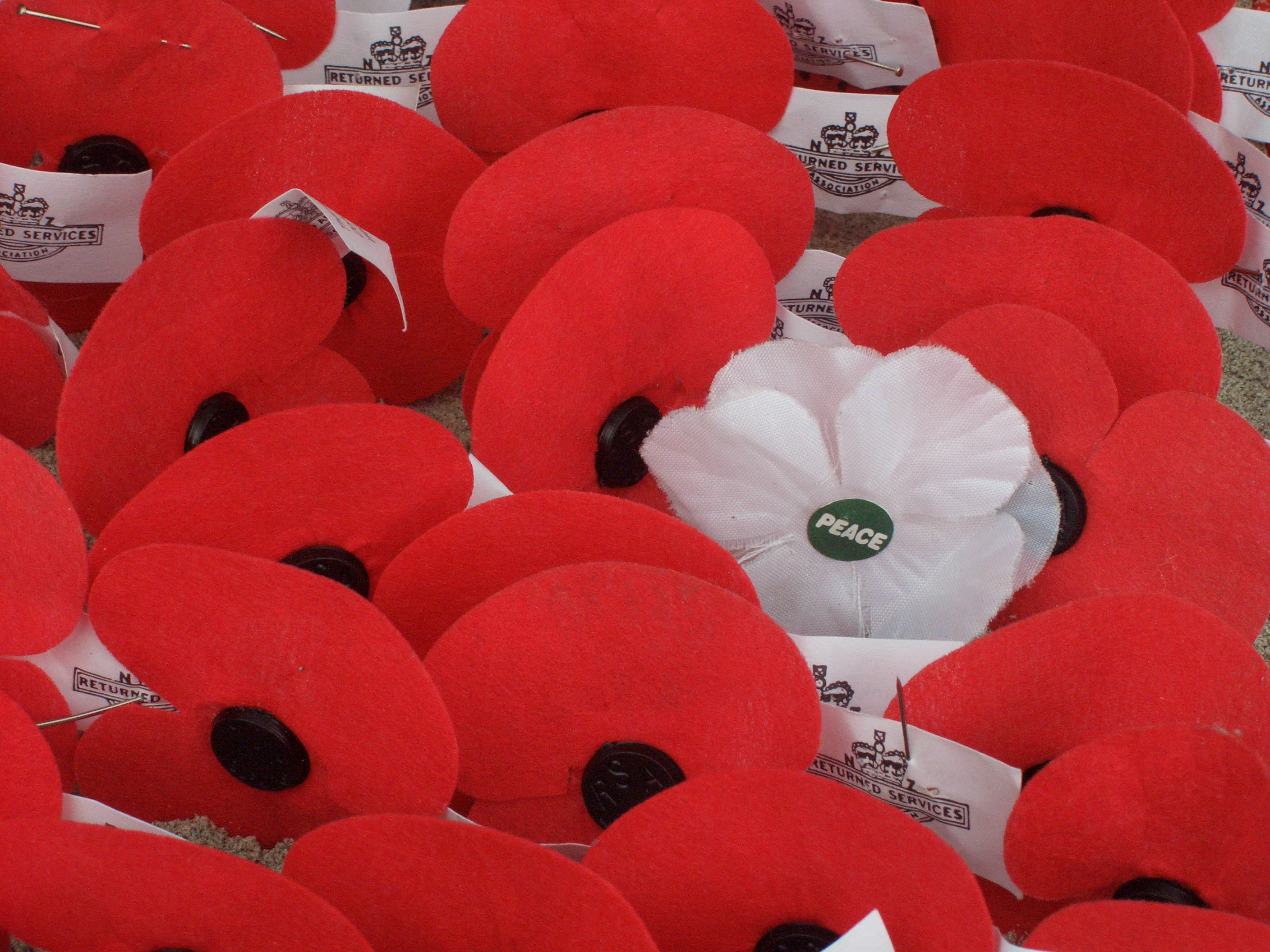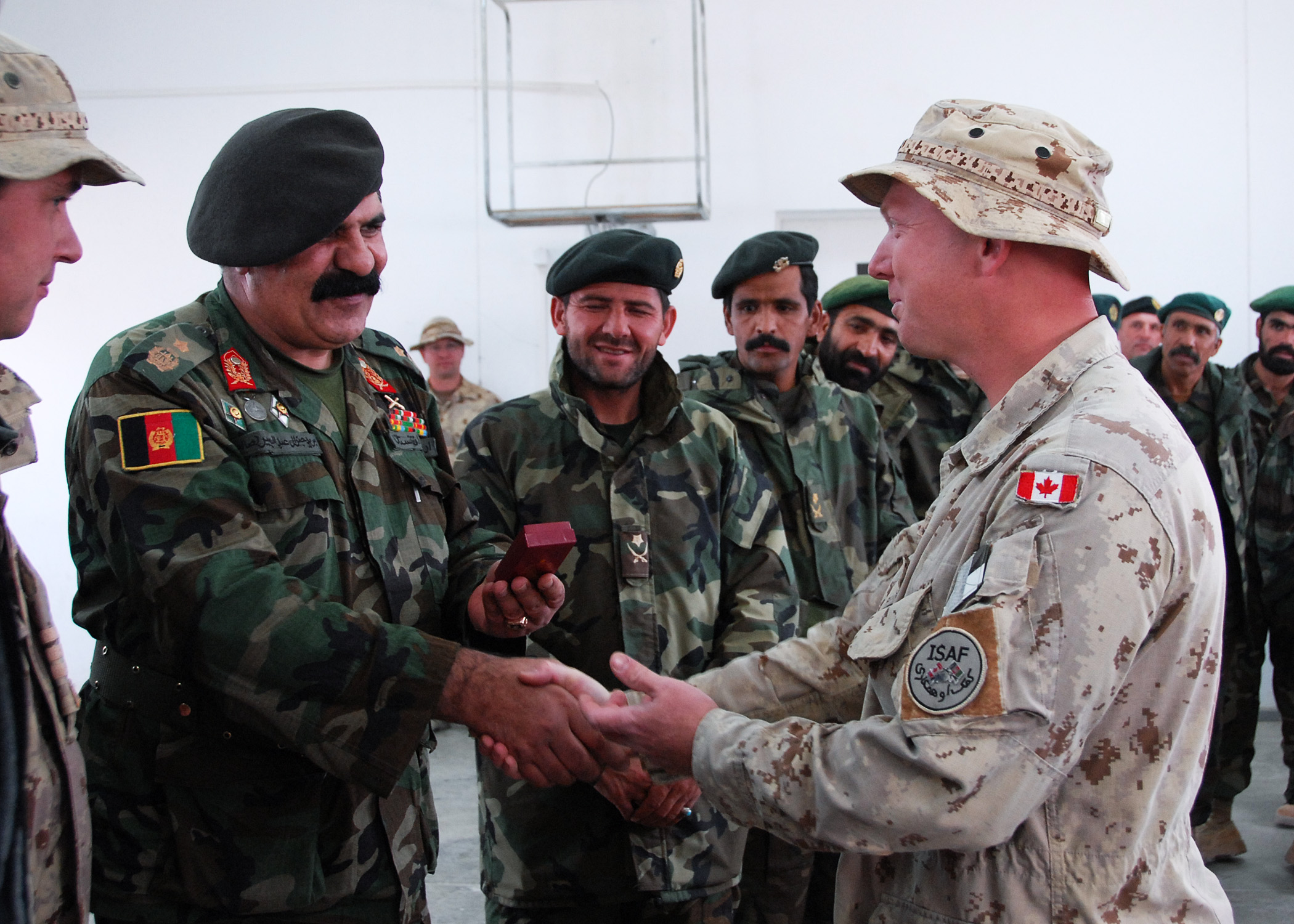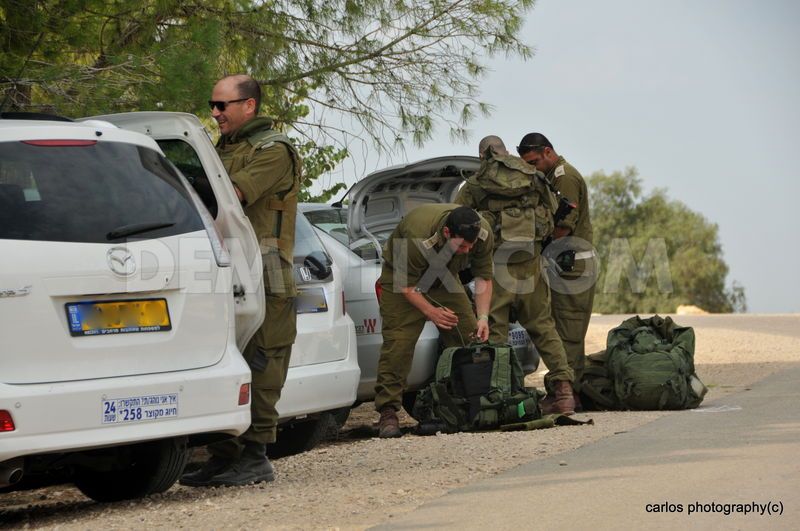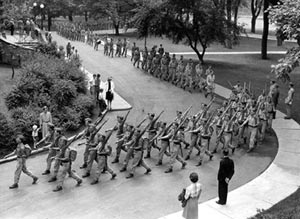Last November, for a class assignment the writer profiled a soldier and University of Toronto graduate who made the ultimate sacrifice in World War II. Captain Ernest Reginald Waldie of small-town Wilstead, Ontario was a recently-married graduate of the University of Toronto School of Pharmacy and a druggist when the Second World War broke out. He was deployed to England as an officer in an anti-aircraft regiment, and fought in the Dieppe raid, the Italian campaign, and finally in the Normandy campaign.
In a letter written in early August, 1944 to his brother Ralph, Waldie commented on his experiences in Normandy. His gun position was under constant shellfire from German artillery. German tanks and infantry had made incursions, necessitating constant vigilance. Sniper fire was taking down many officers, such that the ranks of officers were “being thinned out gradually.” Thanks to the constant battle, Captain Waldie had only been able to enjoy two-and-a-half hours of sleep per night for the past ten days.
In the letter, Waldie expressed the hope that “the next push we make will be a real run and Paris will be its objective.” Indeed, on August 8, 1944, the newly-formed First Canadian Army launched Operation Totalize, which broke through German lines, was instrumental in the destruction of German forces in the Falaise Pocket, and paved the way for the liberation of Paris on August 25, 1944. Sadly, Waldie did not live to see the fruit of his and his fellow Canadians’ efforts. He was killed on the first day of the breakout by German shellfire.
The story of Captain Waldie is a testament to the sacrifices he and his fellow Canadians have made in the two World Wars, Korea, UN peacekeeping missions, and the Afghanistan War to defend Canada and its allies and build a more peaceful and secure world.
Remembrance Day, like any commemoration of history, can invite controversy. Recently, the use of the white poppy in place of the red poppy has provoked public debate. Some charge that the red poppy has been used selfishly by politicians to glorify war and justify unnecessary wars of choice in the Middle East.
Certainly, as the story of Captain Waldie illustrates, war is not and never was pretty. It is a bloody and brutal business, and as scholar Steve Saideman explains, its outcomes are messy. World War I defeated the German bid to dominate the European continent, but the postwar world order was fundamentally unstable and World War II broke out scarcely two decades later. Allied victory in World War II certainly defeated ruthless and genocidal regimes, but also set the stage for the Cold War. Indeed, the Western Allies were powerless to stop the Soviet Union from subjecting Eastern Europe to communist domination. Most recently, as Canada and its NATO allies prepare to withdraw from Afghanistan, the capacity of Afghan troops to ensure security and development is doubtful.
However, the red poppy does not glorify war. Far from it. As the Globe and Mail points out, the red poppy originated not as a political tool, but as reminder of the blood spilt in the fields of Flanders, where that flower is found.
In fact, the white poppy is symbolic of a potentially damaging misunderstanding of history: the claim that war is always or usually meaningless. In the Western world, this originated after the horrors of WWI, and today it has re-emerged in response to prolonged wars in Iraq and Afghanistan. These critics often portray soldiers as lambs manipulated and sent to the slaughter by uncaring elites.
First, this perspective is ultimately disrespectful to the veterans who served because it denies their agency and portrays them as dupes manipulated by powerful elites. Soldiers have a wide range of motivations, ranging from idealist patriotism to the bond of comradeship. For instance, Captain Waldie was no dupe, but instead willingly chose to sacrifice a promising career and happy marriage in order to serve his country.
Second, the view oversimplifies the nature of war. Certainly, war is messy and bloody. Its outcomes are never ideal. But in an anarchic world, war can sometimes be necessary and to fail to recognize this can often lead to even more bloodshed. For instance, Adolf Hitler successfully exploited on Western war-weariness and well-meaning idealist and pacifist sentiment to gobble up smaller states and create a powerful military machine. When war finally erupted in 1939, Nazi Germany had reached such a position of strength that it achieved domination of continental Europe, nearly conquered both Britain and the Soviet Union, and was only defeated at the cost of immense Allied casualties. Allied victory was too late to stop the mass-murder of millions of Jews, Slavs, Roma, and gays.
In conclusion, war is costly, brutal, and ugly. Its outcomes are never ideal and it should never be glorified. But neither is it always meaningless and a product of elite manipulation. When Canadians honour veterans, we should respect them as actors with agency and be grateful for more peaceful and secure world their sacrifices helped to build for us to enjoy.




